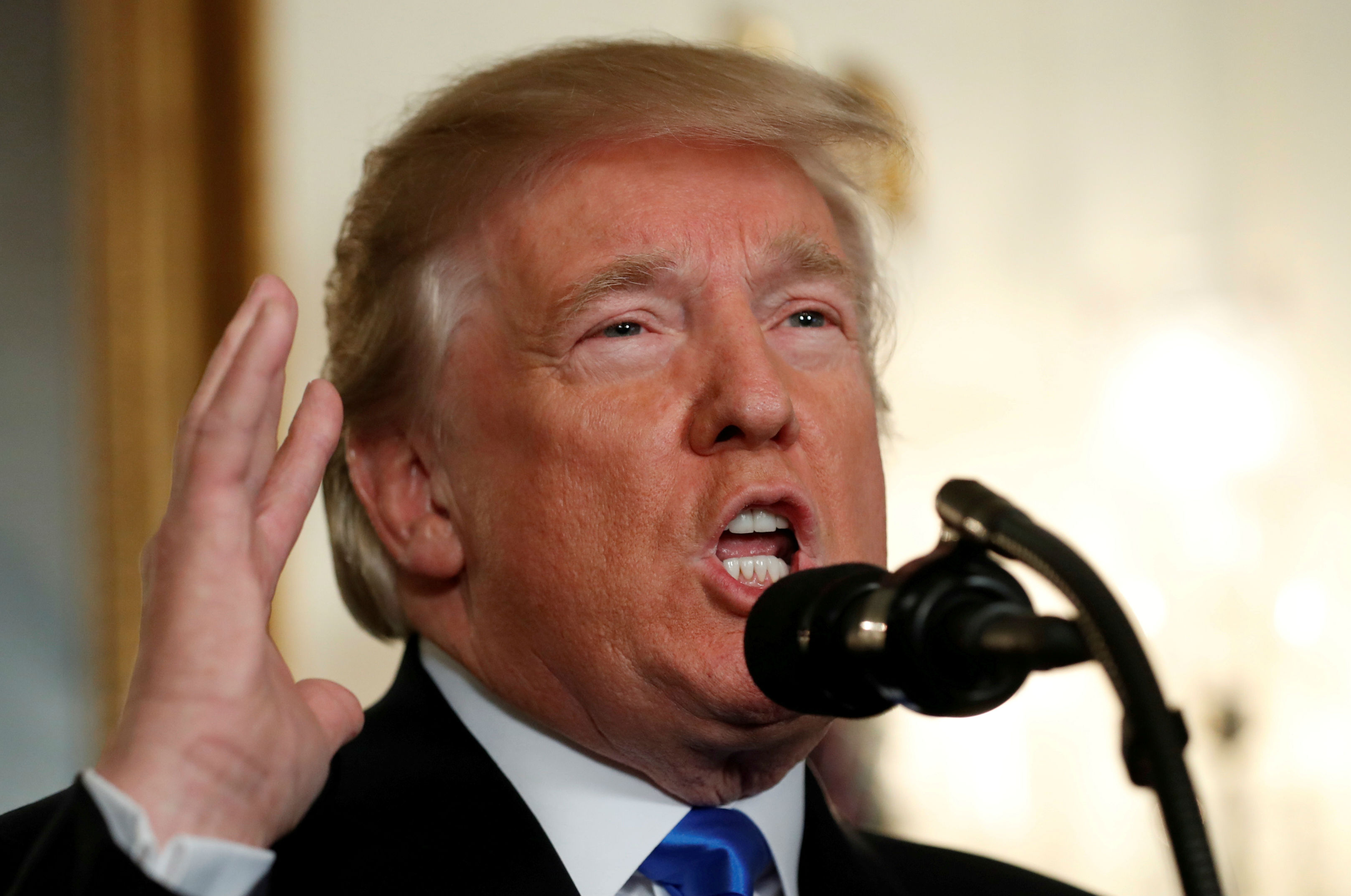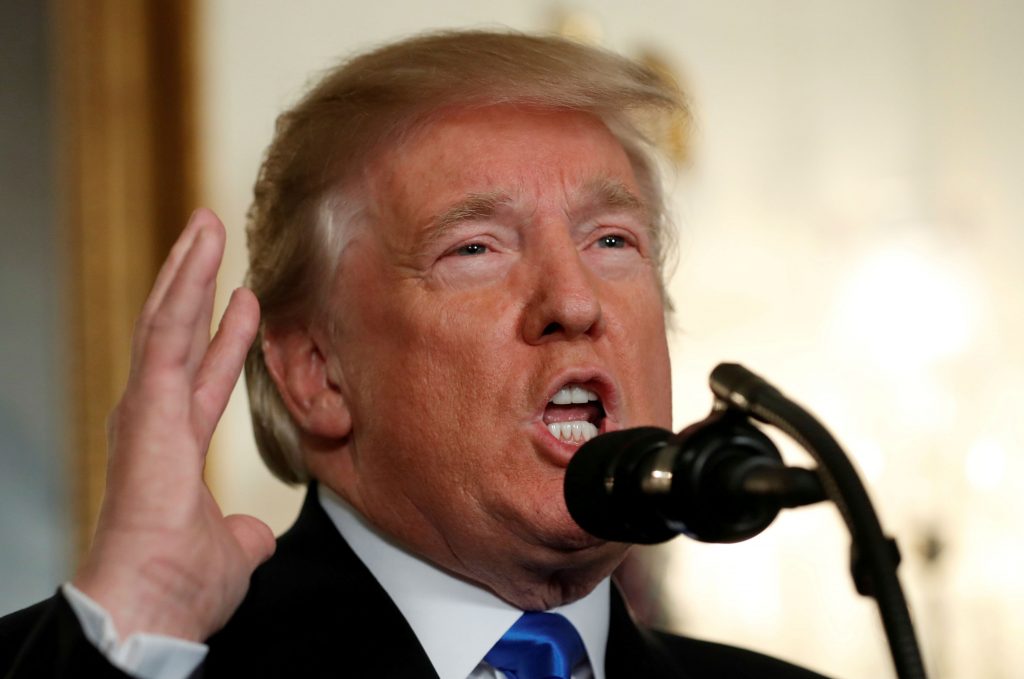 As Donald J. Trump took the oath of office in January 2017, there was a tangible sense of panic in Kyiv. Most analysts were extremely gloomy about the prospects for US-Ukrainian ties, with many predicting that Ukraine would be the primary victim of the Trump administration’s ambitious foreign policy. At the time, these grim forecasts seemed entirely reasonable. The incoming US president had made no secret of his desire to repair the recent rupture in relations with Vladimir Putin that began with the war in Ukraine, while there were also widespread fears of retribution for Ukraine’s perceived backing of Trump rival Hillary Clinton. Looking back at Trump’s first year with the benefit of hindsight, these concerns now appear to have been overblown. Indeed, there is a good case for arguing that the Trump administration has actually proven among the most pro-Ukrainian in modern US history.
As Donald J. Trump took the oath of office in January 2017, there was a tangible sense of panic in Kyiv. Most analysts were extremely gloomy about the prospects for US-Ukrainian ties, with many predicting that Ukraine would be the primary victim of the Trump administration’s ambitious foreign policy. At the time, these grim forecasts seemed entirely reasonable. The incoming US president had made no secret of his desire to repair the recent rupture in relations with Vladimir Putin that began with the war in Ukraine, while there were also widespread fears of retribution for Ukraine’s perceived backing of Trump rival Hillary Clinton. Looking back at Trump’s first year with the benefit of hindsight, these concerns now appear to have been overblown. Indeed, there is a good case for arguing that the Trump administration has actually proven among the most pro-Ukrainian in modern US history.
The White House saved its most emphatic demonstration of support for Ukraine until the final weeks of 2017. The December decision to provide Kyiv with defensive weapons arrived in Ukraine like an early Christmas present, reversing years of refusals by the Obama administration while sending a powerful signal to the Kremlin. Moscow had lobbied long and hard to deter Washington from arming Ukraine, presenting the issue as a red line that would inevitably cause the conflict to escalate if crossed. By disregarding Moscow’s concerns and providing Ukraine with weapons, the White House has underlined its resolve in the kind of language most likely to resonate in the Kremlin.
The Trump administration’s Ukraine-friendly stance has been most visible in the personnel changes introduced over the past year. The choice of Kurt Volker as special representative for Ukraine was perhaps the most important. Volker has brought a refreshing frankness to the dialogue over the war in Ukraine, often abandoning diplomatic niceties in order to stress direct Kremlin responsibility for the conflict while speaking unambiguously about “100 percent Russian command and control” of the so-called separatist republics.
Other welcome additions to Team Trump include National Security Adviser Lieutenant General H.R. McMaster, a rigorous student of military history who wrote the book on Russian hybrid warfare, and Defense Secretary James Mattis, who has long been outspoken in his support for Ukraine in its confrontation with the Kremlin. Prominent Trump administration figures such as Secretary of State Rex Tillerson have also made it clear that the road to improved US-Russia ties runs directly through Ukraine.
Meanwhile, numerous pro-Russian members of the Trump camp have fallen out of favor. The most high-profile casualty was the short-lived National Security Adviser Lieutenant General Michael Flynn, who resigned in February 2017 over his contacts with Kremlin officials and remains a central figure in the probe into alleged Russian meddling in the US presidential election. Other more peripheral figures from the 2016 campaign have also left, including some suspected of Kremlin connections. Far from throwing Ukraine under the bus, the Trump White House has spent much of 2017 building a team that underlines its non-negotiable support for Ukraine’s territorial integrity.
Nor has there been any progress in the widely anticipated thaw between Washington and Moscow. Russian politicians famously toasted Trump’s election victory with champagne and spoke openly of putting “their man” in the White House, but there is precious little evidence of a new era in bilateral relations. On the contrary, ties have deteriorated significantly during Trump’s first year in office. This downward spiral has included successive waves of additional sanctions and the seizure of diplomatic compounds, culminating in the recent publication of a new US National Security Strategy that identifies Russia as a rival power seeking to erode American security and prosperity. Russia’s initial excitement at Trump’s triumph now looks embarrassingly naive while the vast array of Trump-themed souvenirs that hastily appeared on Moscow store shelves in late 2016 have taken on the air of quirky historical curiosities.
The elephant in the room here is the ongoing investigation into collusion between the Trump team and the Kremlin. The Russia probe has remained firmly lodged in the global headlines throughout the past twelve months, attracting additional layers of scrutiny to every single Trump comment and policy decision related to Russia. Skeptics will no doubt argue that in light of the accusations he faces, the US president has had little choice but to pursue a demonstrably tough policy toward the Kremlin, regardless of whether he might actually prefer to strike some kind of geopolitical deal with Putin. This may well be the case, but it matters little as far as Ukraine is concerned. As Bismarck once remarked, politics is the art of the possible, and the current political possibilities in America clearly favor robust support for Ukraine as part of Washington’s broader opposition to Russian hybrid aggression. In that respect, Kyiv has considerably more reason for optimism going into 2018 than Moscow.
Peter Dickinson is a nonresident fellow at the Atlantic Council and publisher of Business Ukraine and Lviv Today magazines. He tweets @Biz_Ukraine_Mag.
Image: US President Donald Trump speaks during an address from the White House in Washington, December 6, 2017. REUTERS/Kevin Lamarque/File Picture
